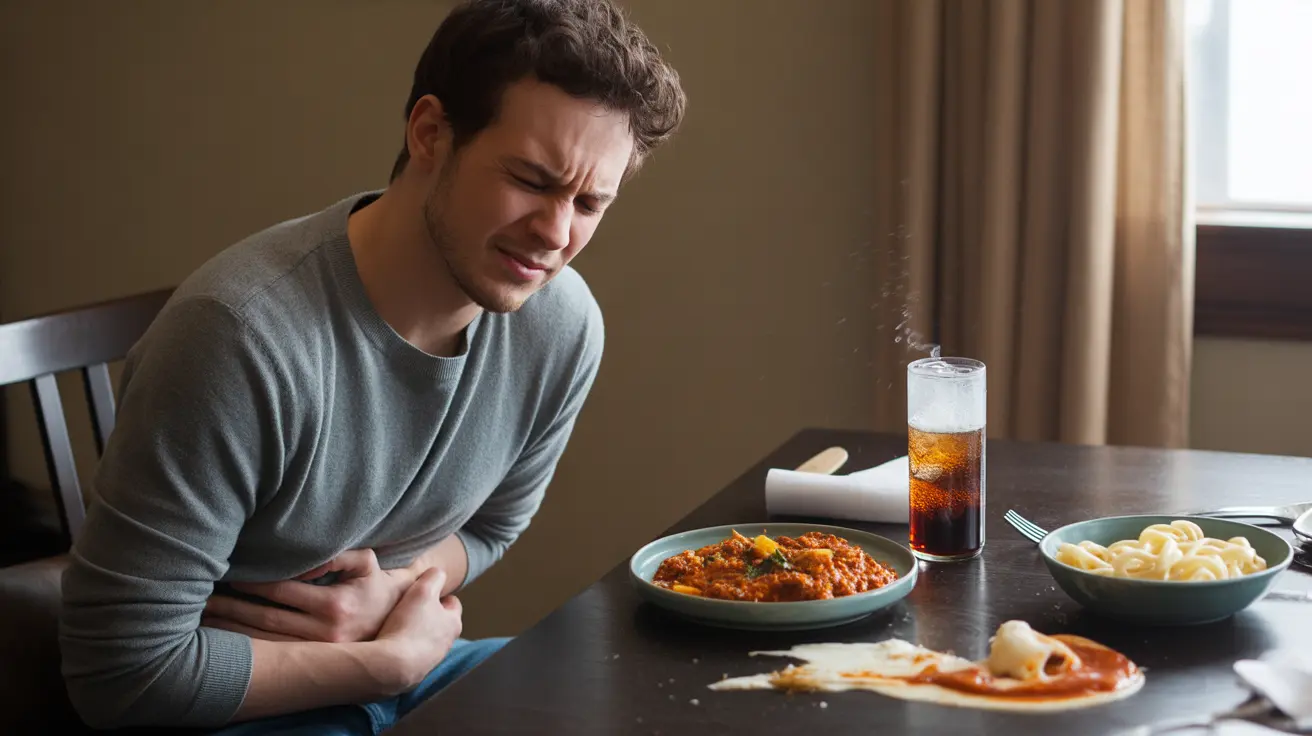Experiencing stomach pain after eating can be both uncomfortable and concerning. This common digestive issue affects many people and can range from mild discomfort to severe pain. Understanding why your stomach hurts after eating is crucial for finding the right solution and knowing when to seek medical attention.
While occasional stomach pain after meals might be harmless, persistent or severe pain could indicate an underlying condition that requires medical attention. Let's explore the various causes, preventive measures, and treatment options for post-meal stomach pain.
Common Causes of Post-Meal Stomach Pain
Several factors can contribute to stomach pain after eating:
Digestive Issues
Common digestive problems that can cause stomach pain include:
- Indigestion (dyspepsia)
- Acid reflux or GERD
- Gas and bloating
- Food intolerance
- Irritable Bowel Syndrome (IBS)
Food-Related Triggers
Certain foods and eating habits can lead to stomach discomfort:
- Spicy or fatty foods
- Acidic foods
- Large portion sizes
- Eating too quickly
- Carbonated beverages
- Caffeine and alcohol
Medical Conditions
More serious conditions that may cause post-meal pain include:
- Peptic ulcers
- Celiac disease
- Inflammatory bowel disease
- Gallbladder problems
- Food allergies
Prevention and Management Strategies
Dietary Modifications
Making smart food choices can help prevent stomach pain:
- Eat smaller, more frequent meals
- Avoid known trigger foods
- Choose easily digestible foods
- Stay hydrated
- Limit alcohol and caffeine intake
Lifestyle Changes
Adopting healthy habits can reduce the likelihood of stomach pain:
- Eat slowly and chew thoroughly
- Don't lie down immediately after eating
- Maintain a healthy weight
- Practice stress management
- Keep a food diary to identify triggers
When to Seek Medical Help
Certain symptoms warrant immediate medical attention:
- Severe or persistent pain
- Blood in stool
- Unintended weight loss
- Difficulty swallowing
- Persistent vomiting
- Fever accompanying stomach pain
Frequently Asked Questions
- What are the most common causes of stomach pain after eating, and when should I see a doctor?
The most common causes include indigestion, acid reflux, food intolerances, and IBS. See a doctor if you experience severe or persistent pain, blood in stool, unexplained weight loss, or if pain interferes with daily activities.
- Can certain foods or drinks trigger stomach pain after eating, and which ones should I avoid?
Yes, common triggers include spicy foods, fatty foods, acidic foods, alcohol, and caffeine. Individual triggers vary, but keeping a food diary can help identify problematic items specific to you.
- What is the difference between indigestion, irritable bowel syndrome (IBS), and food allergies as causes of stomach pain after meals?
Indigestion typically causes upper abdominal discomfort and feeling overly full. IBS involves chronic bowel changes and abdominal pain. Food allergies trigger immune responses with symptoms like hives and difficulty breathing, along with digestive issues.
- What lifestyle changes or home remedies can help relieve stomach pain after eating?
Effective remedies include eating smaller portions, chewing thoroughly, avoiding trigger foods, staying upright after meals, using ginger or peppermint tea, and practicing stress management techniques.
- How do I know if my stomach pain after eating is a sign of a serious condition like GERD, ulcers, or celiac disease?
Serious conditions often present with additional symptoms like persistent heartburn, black stools, unexplained weight loss, or chronic diarrhea. Regular occurrence of these symptoms, especially with severe pain, requires medical evaluation for proper diagnosis.




